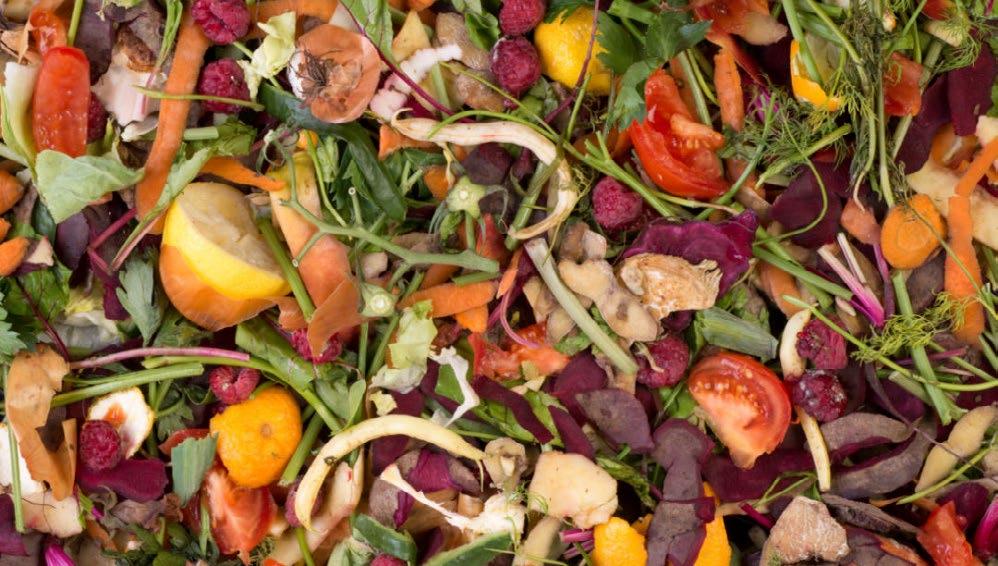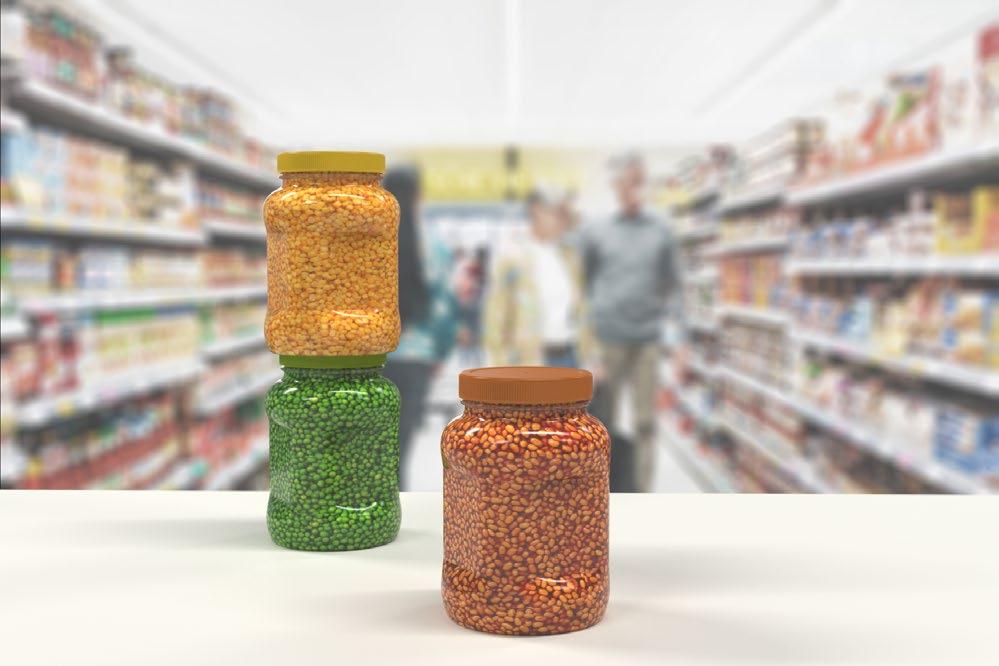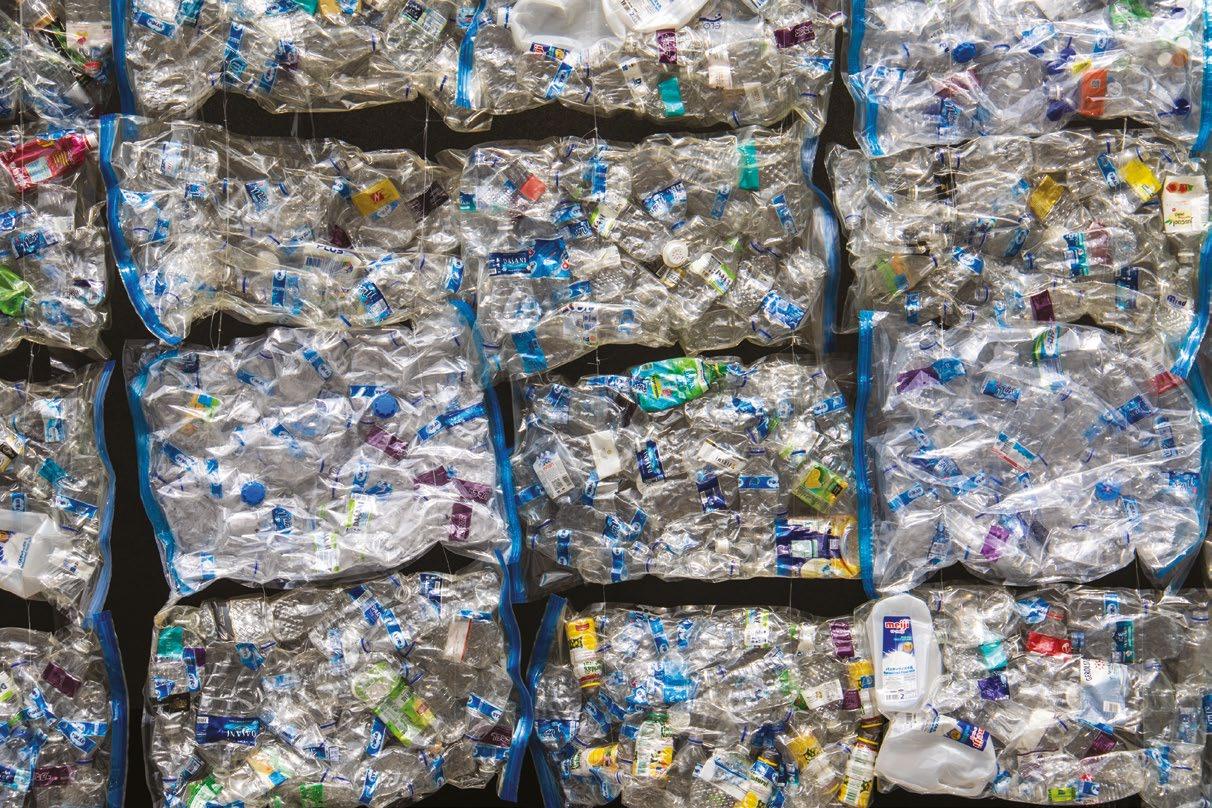
8 minute read
WASTE2FUNC
WASTE2FUNC builds platform to convert food waste into bioplastics and biosurfactants
WASTE2FUNC, a European BBI-JU funded project has been granted a 6,7 M€ budget to build a platform to efficiently collect food waste from agriculture, food industry, supermarkets, auctions and restaurants. These food wastes are currently often discarded, left on the field or incinerated and thus show no value. They will become valuable raw materials to be converted into bioplastics and biosurfactants, with applications in cosmetics, household – and personal care products. This conversion process uses industrial biotechnology. The project brings together 12 partners from 5 countries, including SMEs, large enterprises such as Croda, Evonik and Ecover, research institutes and agricultural associations. The platform will decrease CO2 emissions by at least 20%, increase value from waste 2-10 fold and create jobs for the primary and downstream sector in Belgium and Europe.
Currently, food waste flows, such as fruit and vegetables that don’t meet the standards or bad batches from food processing companies that no longer can be sold, often don’t have a potential end-use route. Consequently, they just rot on the field, are discarded or even incinerated, which leads to unnecessary CO2 emissions.
WASTE2FUNC can offer a solution to this problem. Project Coordinator Sofie Lodens explains: “These emissions can be avoided by using these streams to convert them in to high-value products. TripleW, an Israeli/Belgian SME and Ghent University together with the Bio Base Europe Pilot Plant have developed technology to convert mixed batches of food waste into functional ingredients, more specific lactic acid and microbial biosurfactants respectively, that can be used for the production of bioplastics and personal- and home care applications respectively.


WASTE2FUNC will build a logistic platform to collect the agricultural and food waste and will demonstrate the conversion technology at large scale. ”
The first challenge is the establishment of the logistic platform allowing efficient collection of food waste streams without end use. To this end, the project will develop a registration website/app that can be used to register food waste flows from the agriculture and food industry for collection by a waste collector. Farmers will be intensively consulted on how the project can make the collection of such food wastes worthwhile for them and what compensation should be given in return and thus look into a new revenue model for farmers. In addition, consultations will be held about the availability of these waste streams, both among farmers and the (food) industry. Twelve partners from five countries including several SMEs and three large industries are involved to convert the collected waste into functional molecules to be applied in market products. Sofie Lodens explains: “TripleW already started their lactic acid production batches in their demonstration plant on the site of Group Op de Beeck in Kallo, Belgium. Ghent University and Bio Base Europe Pilot Plant recently established the spin-off company “Amphi-star” to bring their technology for the production of microbial biosurfactants to the market.” The functional ingredients produced within the project, will then be tested and evaluated in end products by large companies such as Evonik, Croda and Ecover.
The ultimate goal at the end of the project is to understand the potential of establishing a biorefinery in which functional molecules can be made from all this collected food waste in a sustainable and economically profitable way. These functional molecules can subsequently be used as building blocks for bioplastics and as ingredients in cosmetics, in biological detergents and in numerous other applications. WASTE2FUNC will contribute to a more sustainable industry by using renewable resources and by its circular approach.
This will decrease CO2 emissions by at least 20% compared to the current production processes of these molecules and increase value from waste 2-10 fold and create (high-tech) jobs for the primary and downstream sector in Belgium and Europe.
www.waste2func.eu/en/


Benefits of New Jar from Berry Stack Up
A new stackable jar from Berry Global offers a valuable space saving solution on retail shelves, through e-commerce channels and in the home. At the same time, the jar provides excellent consumer convenience, and its effective product protection, reusability and recyclability enhance its environmental profile.
The innovative design of the 500ml Staka jar incorporates a 63mm recess in the base into which the accompanying 63mm cap, also from Berry as part of a complete container and closure solution, fits snugly. This allows the jars to be easily stacked and remain very stable.
The cap itself can be specified in a variety of colours, while the eye-catching ‘square round’ design of the Staka jar is ideal for labelling or sleeving, creating excellent brand identity and individuality on shelf. For food manufacturers and processors, the wide mouth of the jar ensures easy filling. Its multilayer construction also allows hot filling and delivers effective product protection for an extended shelf life that helps to minimise food waste. The jar provides safe and easy handling for consumers. After use, it is ideal as a storage container and can be recycled where appropriate recycling facilities exist.
This latest design underlines Berry’s expertise in devising solutions in line with customer requirements, as John Richardson, General Manager of the Berry Corby facility, explained:
“Many of our customers have approached us recently, keen to develop stackable jars for all sorts of products from spices and sauces for our food clients to lubricants in the commercial sector, so we feel confident that there is a need for this design.”

For more information on Berry’s wide range of packaging solutions, visit www.berryglobal.com.








SOCIAL PLASTIC Waste plastic bottles, bags & containers are collected from beaches and riverbanks by local people who are paid for their services – these are taken to local centres for sorting and the recycling process begins.
BELL INTRODUCE REUSED OCEAN PLASTIC REUSED OCEAN PLASTIC
One of the most exciting developments in the plastic packaging industry is our ability to access and reprocess the post-consumer waste found on our beaches, riverbanks and along the perimeters of our oceans.
Unfortunately, plastic is now seen as a bad product – yet out of sight, beneath the surface of our oceans, there are millions of tons of other waste packaging made from glass, paperboard and metal that do not fl oat and therefore cannot be seen. Plastic has become a key focus on social media and in television documentaries, with politicians and supermarkets looking for ways to enhance their green credentials and promote a greener world. There can be no excuse for rubbish being discarded into the environment and Bell are one of the fi rst companies in Europe to endorse and support the collection and recycling of these materials. In 2019 Bell launched Retran® - a polyester-based material containing a minimum 70% recycled content. The credentials of this material are very high – pharmaceutical and food grade, with excellent clarity and full certifi cation. The product has been hugely successful and nearly 80% of our customers around the world have switched to this exciting new product. The 70% recycled content meets the new plastic packaging tax being introduced in April 2022, however Bell recognised the need to keep moving forward and

COLLECTED PLASTIC Coastal regions are an increasingly important source of waste plastic. Every year millions of bottles are collected and reprocessed to make plastic containers, bottles and products that can be used and recycled over & over again.

in 2021 introduced Biojet®. In simple terms, this is Retran® with an additive that stimulates and accelerates the biodegrading process. Whilst both of these products have been hugely successful, we recognised that even more needed to be done. Bell have worked throughout the pandemic, to identify reliable sources of plastic derived from the ocean. In simple terms this is “Reused Ocean Plastic”. The polymer used to produce the new packaging is being sourced from companies who organise local communities to collect plastic waste from beaches, riverbanks and ocean perimeters. Generally, these are communities who do not have the infrastructure for waste management but by paying local people to collect the plastic and deliver it to recycling facilities, the problem is reduced. As we have all seen, there are large quantities of plastic waste fl oating in the sea. If we can help to collect and reuse some of this waste, and turn it back into useful products, then we are taking a signifi cant step forward towards a better global environment. The new material has been extensively tested and meets the minimum strength requirements of our processes. It has excellent optical qualities and our testing to date reports that there has been no difference in the performance of the new material, compared to Retran®, Jetran® or Biojet® packaging.










